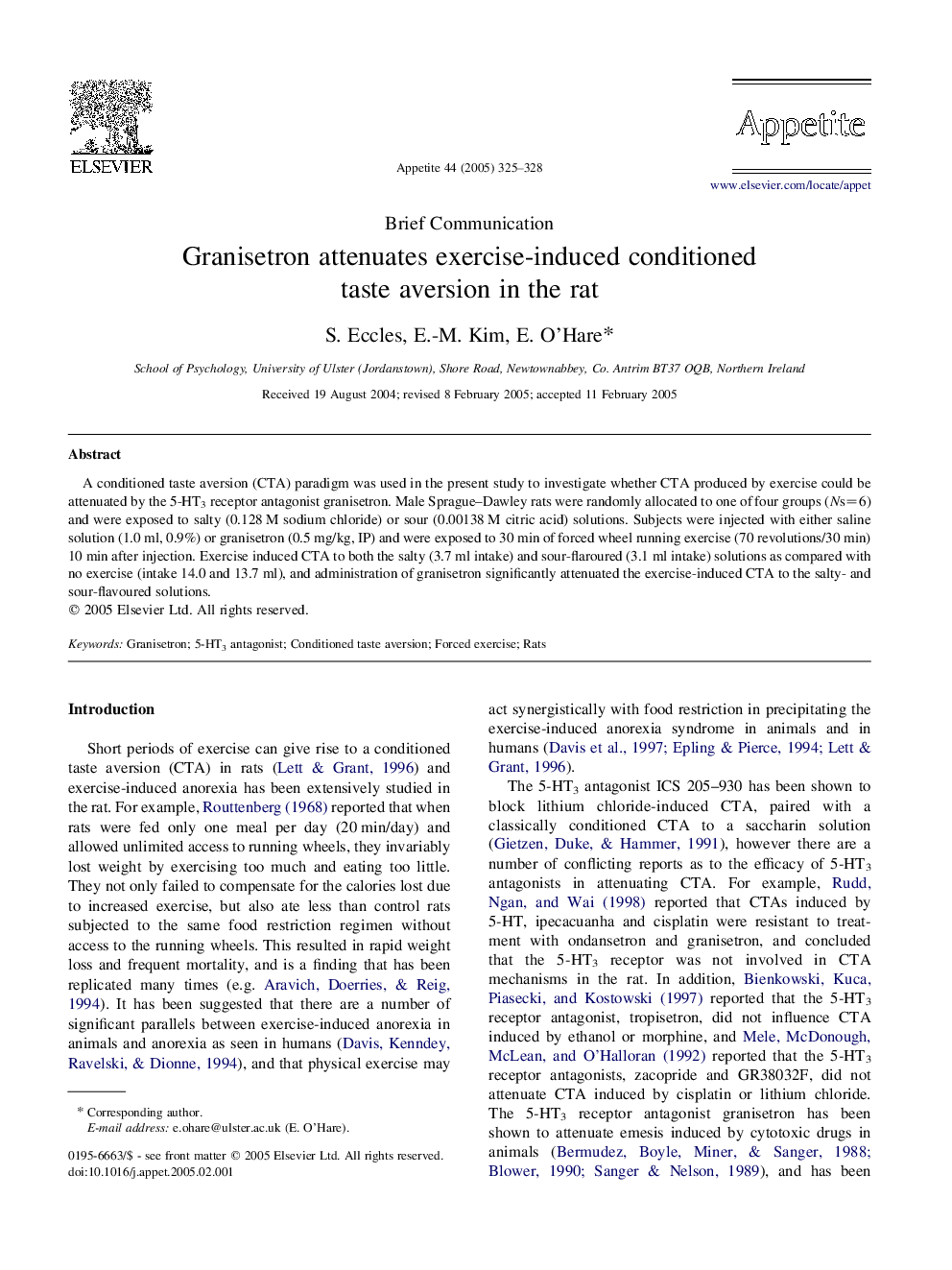| Article ID | Journal | Published Year | Pages | File Type |
|---|---|---|---|---|
| 10462748 | Appetite | 2005 | 4 Pages |
Abstract
A conditioned taste aversion (CTA) paradigm was used in the present study to investigate whether CTA produced by exercise could be attenuated by the 5-HT3 receptor antagonist granisetron. Male Sprague-Dawley rats were randomly allocated to one of four groups (Ns=6) and were exposed to salty (0.128Â M sodium chloride) or sour (0.00138Â M citric acid) solutions. Subjects were injected with either saline solution (1.0Â ml, 0.9%) or granisetron (0.5Â mg/kg, IP) and were exposed to 30Â min of forced wheel running exercise (70 revolutions/30Â min) 10Â min after injection. Exercise induced CTA to both the salty (3.7Â ml intake) and sour-flaroured (3.1Â ml intake) solutions as compared with no exercise (intake 14.0 and 13.7Â ml), and administration of granisetron significantly attenuated the exercise-induced CTA to the salty- and sour-flavoured solutions.
Related Topics
Life Sciences
Agricultural and Biological Sciences
Food Science
Authors
S. Eccles, E.-M. Kim, E. O'Hare,
